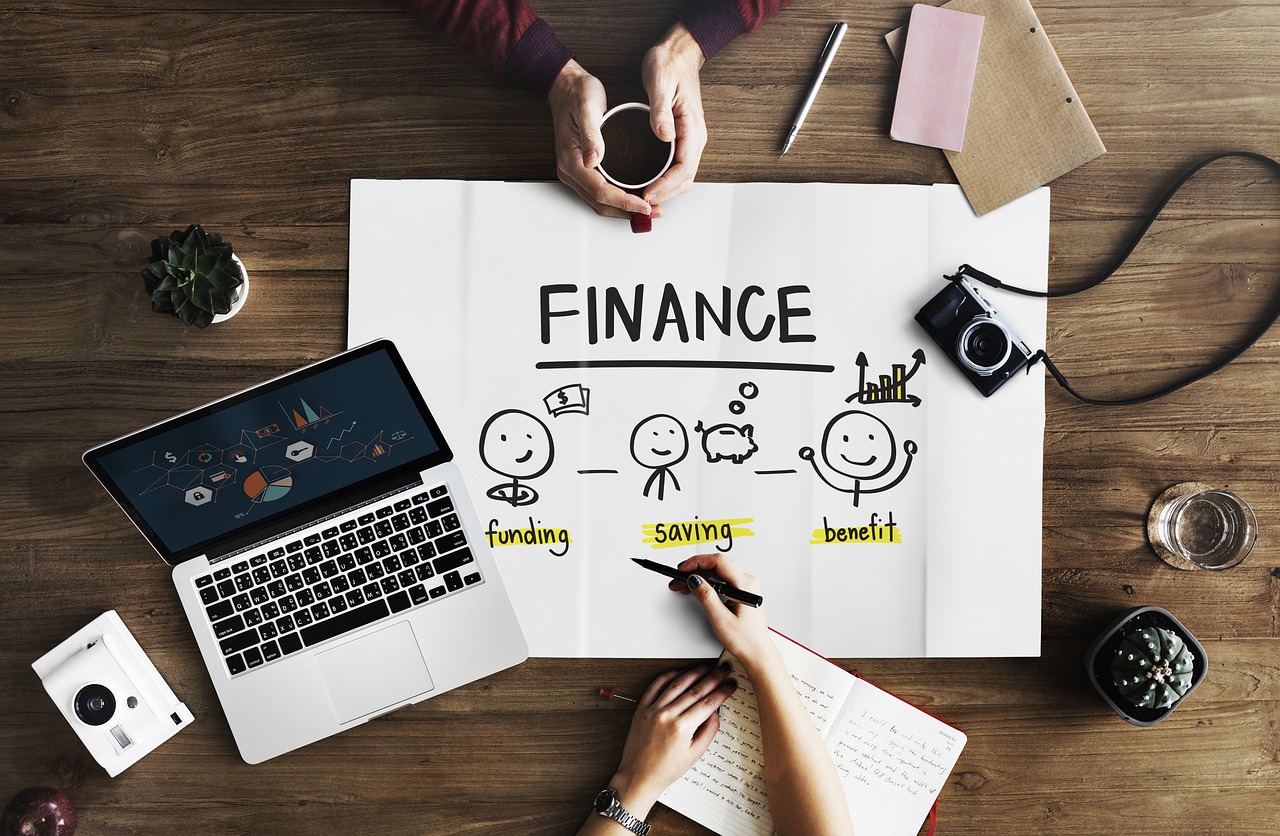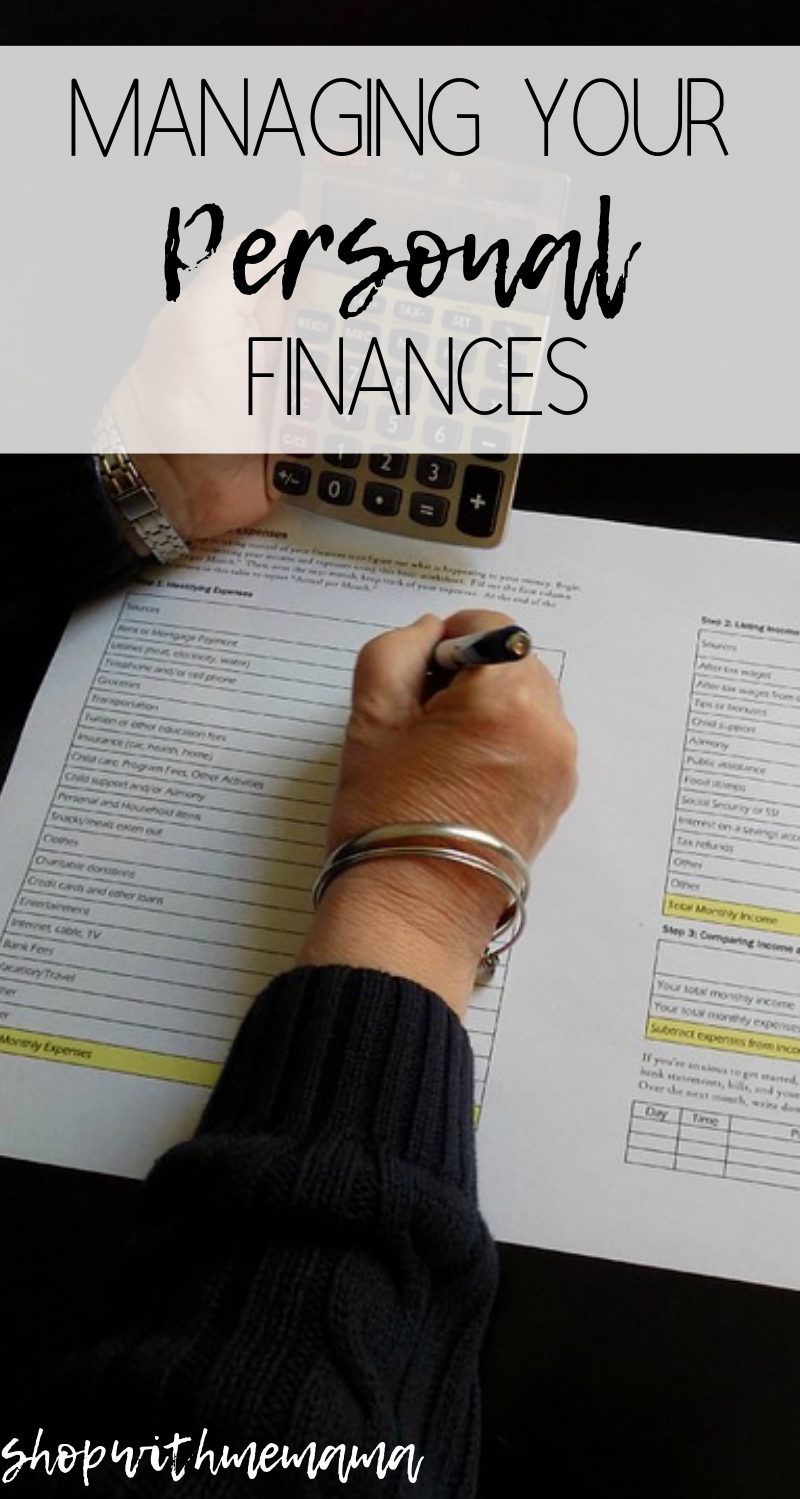Do you wonder where your money goes each month? Is it worries about money that is keeping you awake at night? It would be great if there was a special formula or simple trick that meant you never had to worry about money or stress over Managing Your Personal Finances ever again.
What a good thing it would be if there was a class you could take at school. Unfortunately, none of these happen and you’re left to your own devices to find the best way to do it. Thankfully, there is plenty of advice available online. Here are some tips to get you started.

It Pays to Think Long Term
Think about where you want to be in five or even ten years’ time, rather than worrying about where you are today. You are going to need to make some significant changes if you want to save money and be more financially independent and it helps to have a long-term goal.
Try to save a minimum of 10% of your income, even if it means cutting back in other areas. For one month, make a note of all your expenses, and you’ll be surprised what you’re spending your money on. There are certain to be a number of things in the list you could easily do without.
Understand the Importance of Delaying Gratification
Not so very long ago, people were more than happy to wait for something if they really wanted it. Nowadays, we’re all too quick to rush into borrowing money because we insist on instant gratification. There are certain things you might need to buy immediately, and for these items, you need to find the best possible deal.
Visit the Crediful website if you want to find the best personal finance offers. If you’re able to hold back on those big money items until you’ve saved enough money, you’ll enjoy them so much more and be in a better financial situation. If you lack the discipline to restrain yourself from spending every cent you earn, your financial future is going to be very bleak, and you’ll never save any money.

Change Your Personal Finance Habits
If you want to achieve financial freedom, your aim should be to save 20-30% of your income every time you get paid. Investing those savings wisely will improve your financial independence. Initially, this goal may be a hard one to achieve. You might be too much in debt already and regularly spend all of your paychecks.
Good personal finance habits to have include:
- Track your spending – it helps to know where all your hard-earned cash goes each week
- Create a savings plan – to help you stay motivated, informed and have a baseline to work with
- Learn to say no so you can live within your means – there is little to be gained by covering the extras with your credit card and then worrying about things later
- Pay your bills ahead of time – or at the very least on time because it will save you money, improve your credit score and help you get credit in the future when you need it at a much lower rate
- Pay more than the minimum on your credit cards – otherwise, you’ll be taking years to repay the debt
- Invest in yourself – there are a range of online courses for which you can enroll that will help improve your finance skills and better manage your money
If you want to change your personal finance habits, the best thing you can do is recognize those who are bad or unnecessary. Only when you highlight these can you start to make the changes needed to improve and help you meet your long-term goals.

Managing your personal finances is easy, but you do have to work hard at it. It’s not something that happens all by itself. There are going to be times when you feel completely overwhelmed but don’t let it weigh you down. Learn how to be cautious with your money and think of your long-term goals whenever you’re tempted to spend more than you can afford.
If you’re certain you want to learn how to manage your money, save money and get out of debt, start by saving just 1% of your paycheck. You’ll notice after a few months that your attitude to money changes. You’ll feel more confident and stronger.
Every month that passes you’ll feel able to put more money aside, and your savings account will grow. Within just a few years, your expenses will be lower and your savings higher.